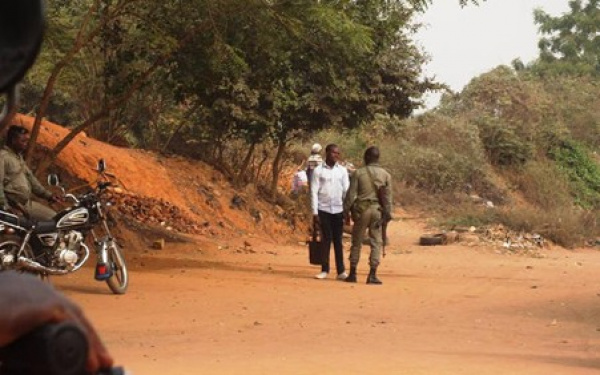Togo has taken a bold step to strengthen border security in Lomé, its bustling capital city. On September 2, 2025, the Ministry of Security and Civil Protection announced tougher control and surveillance measures along the western border. This move follows a recent assessment of the city’s security landscape and reflects mounting concerns over both internal and cross-border threats.
The new approach seeks to provide greater protection to the capital and its surrounding communities. With rising concerns about organized crime, trafficking, and irregular immigration, the government aims to act before risks spiral further. Security officials believe the measure will not only improve safety but also deter criminal networks from exploiting border weaknesses.
Read more: Nigeria Plans to Label Genetically Modified Crops
In its official statement, the Ministry highlighted the broad scope of the initiative. It targets a wide range of criminal activities that directly affect people’s lives and livelihoods. Authorities listed drug trafficking, human trafficking, and smuggling of fuel, gas, and medicines as critical priorities. They also emphasized the circulation of stolen vehicles, weapons, and ammunition that often fuel crime and violence in urban areas.
Citizens of Lomé have lived with concerns about crime for years, and many see this as overdue. Stories of stolen goods, counterfeit drugs, and illicit fuel are part of everyday conversations in local neighborhoods. For many families, these activities translate into insecurity, rising costs, and risks to their health. By tightening surveillance, authorities aim to cut off the supply lines of such threats before they reach the streets.
The announcement comes at a time when Togo, like its neighbors, faces pressure from multiple fronts. Instability in certain parts of West Africa has increased cross-border criminal activity. Smugglers and traffickers often take advantage of porous borders to move goods and people illegally. These activities not only endanger lives but also undermine economic stability and public trust. Strengthening the western border is therefore both a defensive and preventive strategy.
Local observers also note the symbolic importance of this measure. Lomé, as the capital and economic hub, reflects the nation’s broader security image. Any crack in its protection has ripple effects across the country. By reinforcing the western border, the government signals its determination to protect citizens and safeguard national interests. Residents hope the action will restore confidence and make everyday life more secure.
Transitioning from words to effective action will be crucial. Authorities must ensure that officers on the ground have the tools and training needed. Beyond surveillance cameras and patrols, success depends on vigilance, coordination, and integrity. For many Togolese, the effectiveness of the initiative will be judged not by announcements but by results felt in their neighborhoods.
The Ministry’s statement ended with a clear message of commitment to protecting public security. It called on citizens to cooperate with law enforcement and report suspicious activities. For ordinary people, this appeal reflects an understanding that safety requires shared responsibility. While government sets the direction, the community’s vigilance will make the difference in sustaining progress.
Togo’s border security push in Lomé reflects a broader battle against modern threats. By confronting trafficking, smuggling, and illegal migration, the country seeks to build a safer and more resilient future. Citizens are watching closely, hoping that the move marks not just another policy but a lasting shift toward peace and stability.





